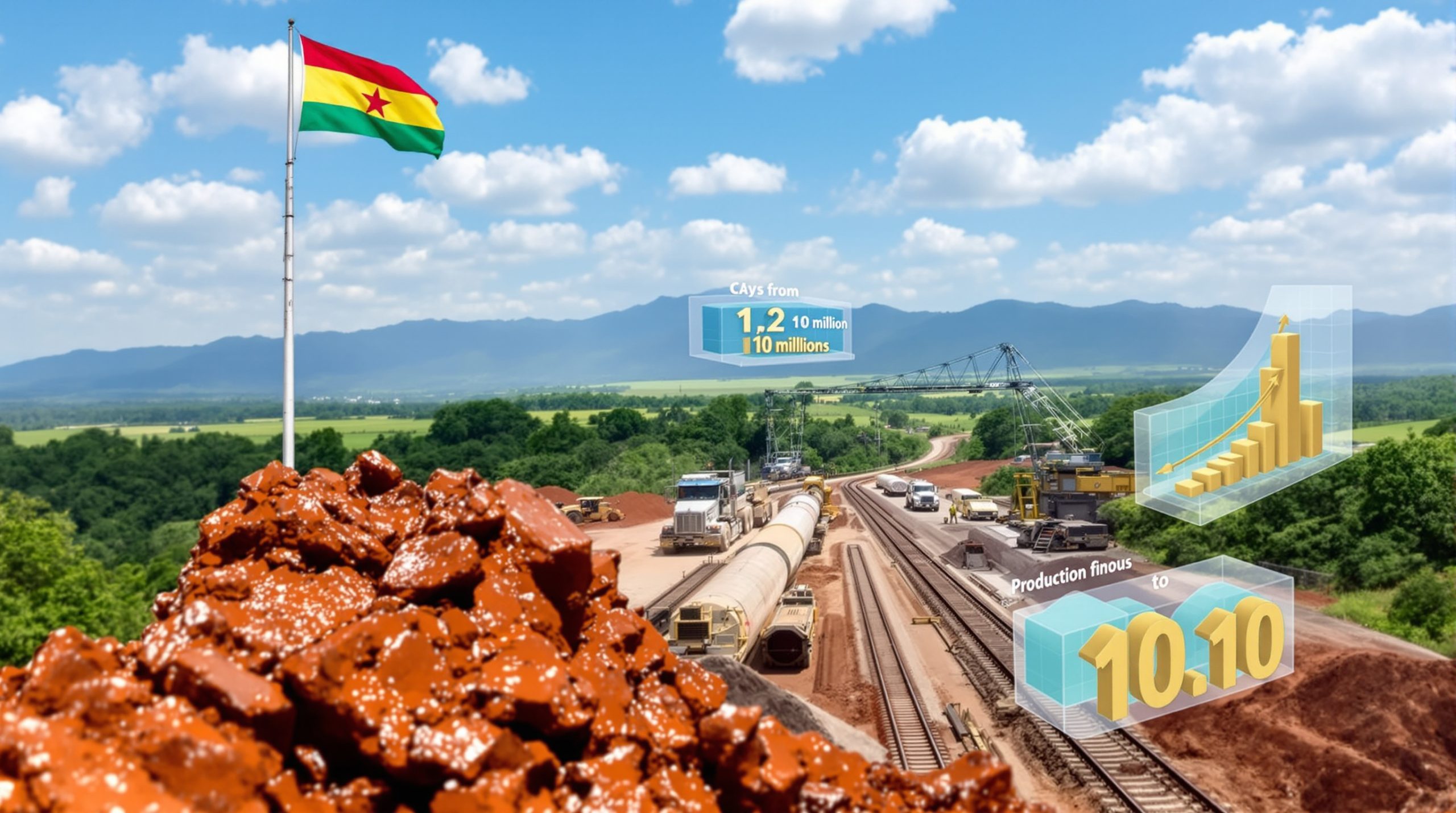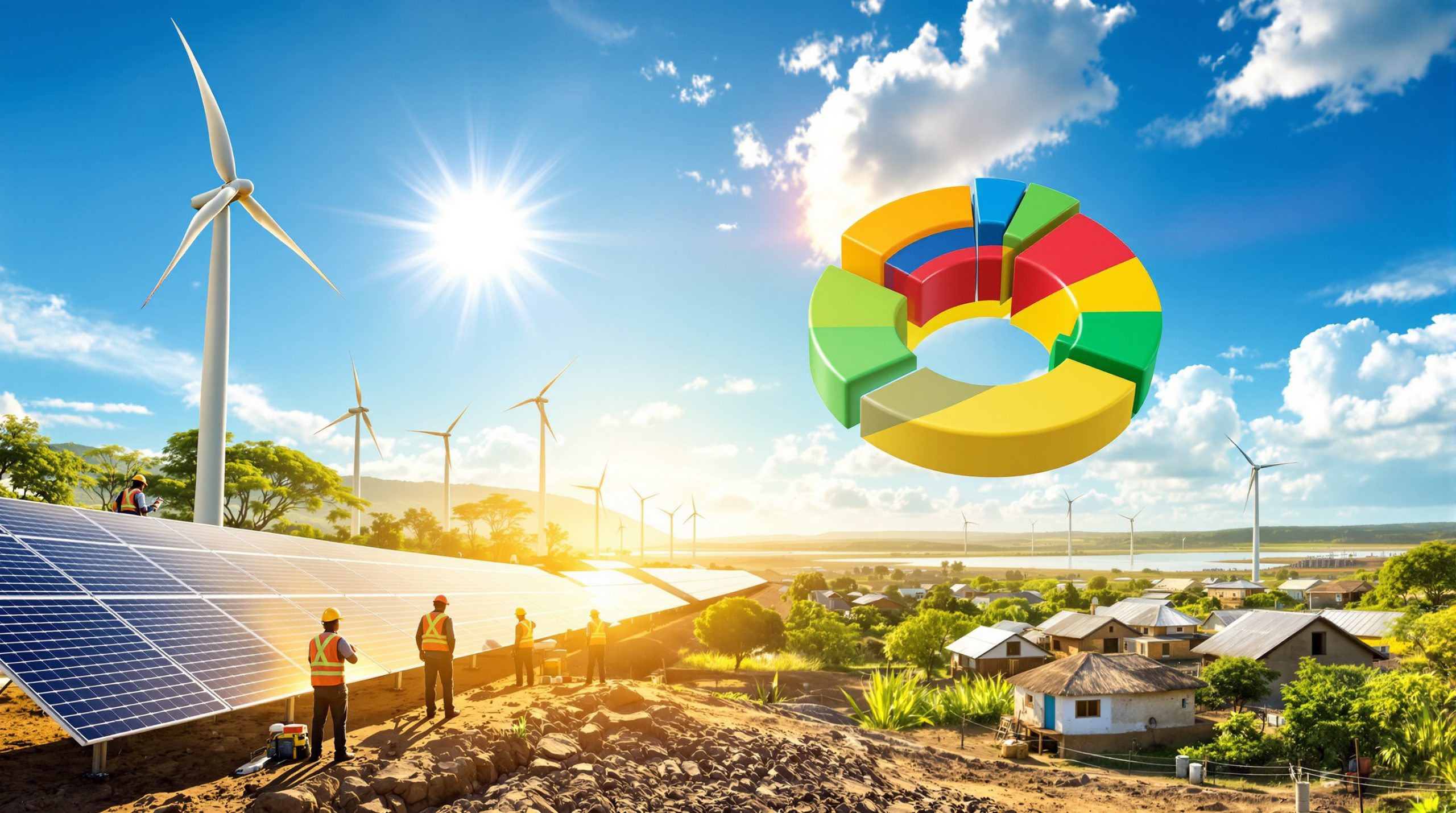Wärtsilä's 204MW Power Plant for Pakistan's Reko Diq Mining Project: Strategic Energy Solutions
What is the Reko Diq mining project?
A world-class copper-gold development in Balochistan
The Reko Diq project represents one of the world's largest undeveloped copper-gold deposits, strategically located in Pakistan's remote Balochistan region. With estimated reserves of over 12.3 million tons of copper and 20.9 million ounces of gold, this massive mining venture holds significant potential to transform Pakistan's mineral sector and contribute substantially to the country's economic growth.
The project's scale and scope necessitate robust infrastructure development, particularly reliable power generation capabilities to support continuous mining operations that will span decades.
Strategic importance for Pakistan's economy
As a cornerstone development in Pakistan's mining sector, Reko Diq is expected to deliver substantial socioeconomic benefits including increased local employment opportunities, community development initiatives, and significant contributions to Pakistan's GDP—potentially adding 1.5% to the national economy during peak production years.
The project aligns with Pakistan's broader economic goals of unlocking its vast untapped mineral resources, which include not only copper and gold but also lithium and rare earth elements—critical materials for global energy transition insights. According to geologists familiar with the region, Balochistan's mineral potential has been historically underexplored due to infrastructure limitations and security concerns.
How will Wärtsilä's power plant support the Reko Diq project?
204MW power solution with advanced engine technology
Wärtsilä has secured a contract to supply a comprehensive 204MW power plant solution featuring 12 Wärtsilä 50 engines and auxiliary equipment. This power generation facility will provide the reliable and economical electricity supply essential for efficient mining operations at the remote Reko Diq site, where grid connectivity is limited and power requirements are intensive.
The contract was officially recorded in Wärtsilä's order books during the second quarter of 2025, with equipment delivery scheduled to begin in late 2026. Each Wärtsilä 50 engine delivers approximately 17MW of power, providing redundancy in the system to ensure continuous operations even during maintenance cycles.
Engineering, Procurement, and Construction (EPC) approach
The power plant will be delivered under a full Engineering, Procurement, and Construction (EPC) contract awarded by Reko Diq Mining Company. This turnkey approach ensures integrated project execution from design through commissioning, providing a single point of responsibility for the entire power generation system.
Tim Cribb, Reko Diq Mining Company Project Director, stated: "We are pleased to have a reliable and collaborative partnership with Wärtsilä on this considerable project. Wärtsilä's technical expertise and strong local presence in Pakistan are highly valued." The EPC model reduces interface risks between different contractors and streamlines project delivery timelines—a critical factor for the overall Reko Diq development schedule.
What makes this power plant solution future-ready?
Flexible fuel capabilities for sustainability
A distinguishing feature of the power plant design is its forward-looking technological architecture that enables future conversion of the engines to operate with alternative fuels, including synthetic fuels and potentially hydrogen blends. This flexibility provides a pathway toward reduced emissions and adaptation to evolving energy landscapes as mining decarbonisation trends intensify globally.
The strategic incorporation of fuel flexibility aligns with growing sustainability requirements in the mining sector, where environmental considerations are increasingly important for project approval and stakeholder support. Mining industry analysts note that fossil fuel-dependent operations face increasing scrutiny from investors and financiers who demand clear pathways to emissions reduction.
Heat recovery and renewable integration capabilities
The contract scope includes full heat recovery boilers to facilitate the potential addition of a Flexicycle (steam turbine) system, which would enhance overall plant efficiency by capturing waste heat for additional power generation. When implemented, this combined cycle approach can increase total efficiency by 8-10% compared to simple cycle operation.
Furthermore, the plant has been specifically designed to integrate with renewable energy sources, creating opportunities for hybrid power solutions that could reduce operational costs and environmental impact while maintaining reliability. The system architecture includes provisions for solar PV integration and advanced control systems that can optimize the power mix between thermal and renewable sources.
Future grid connectivity provisions
Looking beyond immediate project needs, the power plant incorporates provisions for future grid connection. This forward-thinking approach allows for potential integration with Pakistan's national electricity infrastructure, providing flexibility for power export or import depending on operational requirements and grid conditions.
Such connectivity could enhance system resilience and create additional value streams for the mining operation, potentially allowing excess power to be sold to the grid during periods of lower mining consumption or enabling grid backup during peak demand periods. Energy experts note that this approach future-proofs the investment while supporting Pakistan's broader energy security objectives.
What are the technical specifications of the power plant?
Engine configuration and performance metrics
The 204MW power plant will utilize 12 Wärtsilä 50 engines, which are known for their robust performance in challenging environments. These engines offer high efficiency across varying load profiles—an essential characteristic for mining operations with fluctuating power demands.
The Wärtsilä 50 engines provide excellent load-following capabilities with ramp rates of up to 10MW per minute, quick start-up times of less than 10 minutes to full load, and reliable operation even in extreme conditions typical of remote mining sites. Each engine has a cylinder bore of 500mm and delivers approximately 17MW of electrical output with efficiency ratings exceeding 45% in simple cycle operation.
Auxiliary systems and control technology
Beyond the core engines, the power plant will include comprehensive auxiliary systems essential for optimal performance, such as cooling systems, fuel handling equipment, and advanced control interfaces. The cooling system is designed to maintain performance even at the high ambient temperatures common in Balochistan, which can exceed 40°C during summer months.
Wärtsilä's integrated automation systems will enable precise monitoring and management of the entire power generation facility, optimizing performance while minimizing operational costs and maintenance requirements. The UNIC (Unified Controls) system provides advanced diagnostics and predictive maintenance capabilities that can reduce unplanned downtime by up to 50% compared to conventional power plants.
Heat recovery implementation
The inclusion of heat recovery boilers represents a significant efficiency enhancement, capturing thermal energy from engine exhaust gases that would otherwise be wasted. This recovered heat can be utilized for various purposes, including the generation of additional electricity through a steam turbine cycle, potentially increasing the overall plant efficiency to over 50%.
The heat recovery system is designed to produce high-quality steam at pressures suitable for power generation, with each engine's exhaust gas temperature of approximately 340-380°C providing significant energy recovery potential. Engineering specialists note that in mining applications, where power reliability is paramount, such combined cycle approaches offer an optimal balance between efficiency gains and operational robustness.
How does this project impact Pakistan's mining sector development?
Catalyst for mineral resource development
According to Alexandre Eykerman, Wärtsilä Energy Business Director, "Mining is a key sector with one of the largest growth potentials for Pakistan's future. Projects like Reko Diq, with large gold and copper reserves, are crucial for unlocking the sector's potential and helping Pakistan to improve its GDP."
The establishment of reliable power infrastructure at Reko Diq could serve as a model for future mining developments in Pakistan's mineral-rich regions. Industry analysts suggest that demonstrating successful implementation of large-scale mining infrastructure could reduce the perceived risk premium for other projects in the region, potentially accelerating investment in Pakistan's estimated $500 billion worth of untapped mineral resources.
Building local capacity and expertise
The implementation of advanced power generation technology at Reko Diq contributes to knowledge transfer and skills development within Pakistan's energy and mining sectors. Wärtsilä's established local presence in Pakistan facilitates training and capacity building for local personnel who will operate and maintain the power plant.
Regional development experts note that beyond direct employment, such projects create opportunities for local service providers and contractors to upskill their capabilities, potentially enabling them to participate in future projects at international standards. The power plant is expected to employ approximately 50-60 full-time staff during operations, with training programs designed to maximize local employment opportunities.
Environmental considerations in mining operations
The power plant's design features, including future fuel flexibility and renewable integration capabilities, reflect growing awareness of environmental considerations in mining operations. By incorporating pathways to reduced emissions and increased efficiency, the project demonstrates how modern mining sustainability transformation can balance operational requirements with environmental responsibility.
Mining industry sustainability experts point out that incorporating environmental adaptability from the outset is increasingly necessary for securing project financing and maintaining social license to operate throughout a mine's lifecycle. The plant's design allows for progressive emissions reduction without compromising the reliability that is essential for mining operations.
What is Wärtsilä's experience in mining sector power solutions?
Global portfolio of mining power projects
Wärtsilä has established a strong track record in providing power solutions for mining operations worldwide, with over 2,500MW of installed capacity specifically serving mining applications across diverse geographical regions and operational contexts.
The company's experience spans diverse geographical regions and mining applications, from remote off-grid sites to operations with complex power requirements. This extensive portfolio has enabled Wärtsilä to develop specialized expertise in addressing the unique challenges of mining sector power generation, particularly in balancing reliability requirements with efficiency and environmental considerations.
Recent mining sector contracts
The Reko Diq project adds to Wärtsilä's growing portfolio of mining sector power solutions. In September 2024, the company secured a contract to supply engines and auxiliary equipment for a new power plant at the Boto gold mine in Senegal, which included six Wärtsilä 32 engines with a combined output of 36MW.
This recent experience demonstrates Wärtsilä's continued focus on serving the mining industry's power needs across different regions and project scales. Industry watchers note that Wärtsilä's increasing presence in mining sector power generation reflects the industry's growing recognition of the value of flexible, efficient power solutions over traditional approaches.
Value proposition for mining operations
Wärtsilä's approach to mining sector power generation emphasizes reliability, flexibility, and lifecycle efficiency—critical factors for mining operations where power disruptions can result in significant production losses. The company's solutions are designed to accommodate the evolving needs of mining projects, from initial development through full-scale production and potential future expansions.
Power generation reliability is particularly crucial for mining operations, where the cost of downtime can exceed $100,000 per hour for major operations. Wärtsilä's multi-engine approach provides inherent redundancy that maintains power availability even during maintenance or unexpected outages of individual units—a significant advantage over single large generator approaches historically common in mining applications.
What are the implementation timelines for the power plant?
Project schedule and key milestones
Following the contract finalization in Q2 2025, the project has entered the detailed engineering and procurement phase. Equipment delivery is scheduled to begin in late 2026, with installation, commissioning, and testing to follow according to the overall Reko Diq project development timeline.
The power plant represents a critical infrastructure component that must be operational before full-scale mining activities can commence. Engineering specialists familiar with similar projects estimate a 6-8 month commissioning period following equipment installation, with phased energization allowing partial operations while the complete system undergoes testing.
Coordination with broader mining development
The power plant implementation schedule is closely coordinated with the broader Reko Diq project development plan to ensure power availability aligns with mining equipment commissioning and production ramp-up requirements. This synchronization is essential for optimizing capital deployment and achieving operational readiness according to the project's master schedule.
Mining project development experts note that power generation capability typically needs to be available 3-6 months before ore processing begins to support commissioning activities and ensure systems reliability before production dependencies emerge. The Wärtsilä delivery schedule has been developed with these considerations in mind.
Long-term operational support
Beyond initial implementation, Wärtsilä's engagement with the Reko Diq project will likely extend to long-term operational support through service agreements, technical assistance, and spare parts supply. This ongoing relationship ensures the power plant maintains optimal performance throughout the mining operation's lifecycle, which typically extends over decades for major copper-gold developments.
Long-term service agreements in similar installations typically include performance guarantees, with availability commitments exceeding 95% and provisions for remote monitoring and predictive maintenance to minimize unplanned downtime. These arrangements become increasingly important in remote operations where specialized technical support may not be readily available locally.
How does this project compare to other mining power solutions?
Advantages over grid-dependent operations
For remote mining sites like Reko Diq, self-contained power generation offers significant advantages over grid dependency, including supply reliability, power quality control, and independence from regional infrastructure limitations. A 2024 mining industry study found that self-generation reduced power-related production disruptions by 78% compared to grid-dependent operations in similar remote locations.
Wärtsilä's solution provides these benefits while incorporating flexibility for future grid integration when feasible, offering the best of both approaches. Energy consultants note that grid instability in developing regions can cause voltage fluctuations that damage sensitive processing equipment—a risk that is mitigated through dedicated power generation with appropriate power quality management.
Alternatives to diesel-only generation
Traditional mining operations often rely exclusively on diesel generation, which can present fuel logistics challenges and exposure to price volatility. A typical large-scale mining operation consuming 200MW of power exclusively from diesel generation would require approximately 1,000,000 liters of fuel daily, necessitating complex logistics and storage solutions.
The Wärtsilä power plant's design incorporates pathways to alternative fuels and renewable integration, providing options to diversify energy sources and potentially reduce operational costs over the project lifecycle. Mining financial analysts estimate that each 10% reduction in fuel consumption through efficiency or renewable integration can improve project NPV by 2-5% depending on local fuel costs and transportation premiums.
Comparison with renewable-hybrid systems
While fully renewable power solutions are gaining traction in the mining sector, the scale and criticality of the Reko Diq operation necessitates the reliability of thermal generation as a foundation. However, the Wärtsilä solution's design for renewable integration represents a balanced approach that maintains operational certainty while enabling progressive incorporation of renewable energy as the project evolves.
Mining operations in Chile and Australia have demonstrated that hybrid systems combining thermal generation with 20-30% renewable penetration can achieve optimal balance between reliability and emissions reduction. The Wärtsilä power plant's control systems are specifically designed to manage such hybrid configurations, allowing for future expansion of renewable components without compromising system stability.
What are the economic implications of the power plant?
Capital investment considerations
The 204MW power plant represents a significant capital investment within the overall Reko Diq project development budget. While specific contract values have not been disclosed, industry benchmarks suggest power generation infrastructure typically represents 15-20% of total capital expenditure for large mining developments.
However, this investment in reliable, efficient power generation is essential for enabling the mining operation's value creation, as power disruptions or quality issues could result in production losses far exceeding the incremental cost of a premium power solution. Mining finance specialists estimate that each day of lost production at full capacity could represent $5-7 million in revenue impacts for a project of Reko Diq's scale.
Operational cost optimization
The power plant's efficiency features, including heat recovery capabilities and potential future integration with renewables, contribute to optimizing operational costs over the project lifecycle. Energy typically represents 20-30% of operational expenses for mining projects, making efficiency improvements directly impactful to the operation's economic performance.
The Wärtsilä 50 engines' fuel efficiency, combined with heat recovery potential, can reduce specific fuel consumption by up to 20% compared to conventional diesel generation. Over a 20-year operational life, such efficiency improvements could represent hundreds of millions of dollars in operational savings, significantly improving project economics.
Risk mitigation value
Beyond direct economic considerations, the power plant's reliability and flexibility features provide valuable risk mitigation for the mining operation. By reducing the likelihood of production disruptions due to power issues, the Wärtsilä solution helps protect the project's revenue generation capability and supports consistent operational performance.
Mining risk management specialists emphasize that power supply reliability should be evaluated not only in terms of direct operational costs but also considering impacts on production consistency, equipment lifespan, and even corporate reputation. The multi-engine configuration of the Wärtsilä plant provides inherent redundancy that substantially reduces these risks compared to alternative approaches.
FAQ: Wärtsilä Power Plant for Reko Diq Project
What is the capacity of the power plant being supplied to the Reko Diq project?
The power plant will have a total capacity of 204 megawatts (MW), generated by 12 Wärtsilä 50 engines and associated auxiliary equipment. This substantial capacity is designed to meet the significant power requirements of large-scale mining operations at the Reko Diq copper-gold project.
When will the power plant equipment be delivered?
According to the project schedule, delivery of the Wärtsilä equipment is expected to begin in late 2026. This timeline aligns with the broader development schedule for the Reko Diq mining project, ensuring power generation capabilities will be available when needed for mining operations.
Can the power plant be adapted for alternative fuels in the future?
Yes, the power plant includes technological features specifically designed to allow future conversion of the engines to operate with alternative fuels. This forward-looking design provides flexibility to adapt to evolving energy landscapes and potential decarb
Ready to Spot the Next Major Mineral Discovery?
Discovery Alert's proprietary Discovery IQ model instantly notifies investors of significant ASX mineral discoveries, turning complex data into actionable investment opportunities before the broader market responds. Visit our discoveries page to see how historic mineral discoveries have generated substantial returns for early investors.




